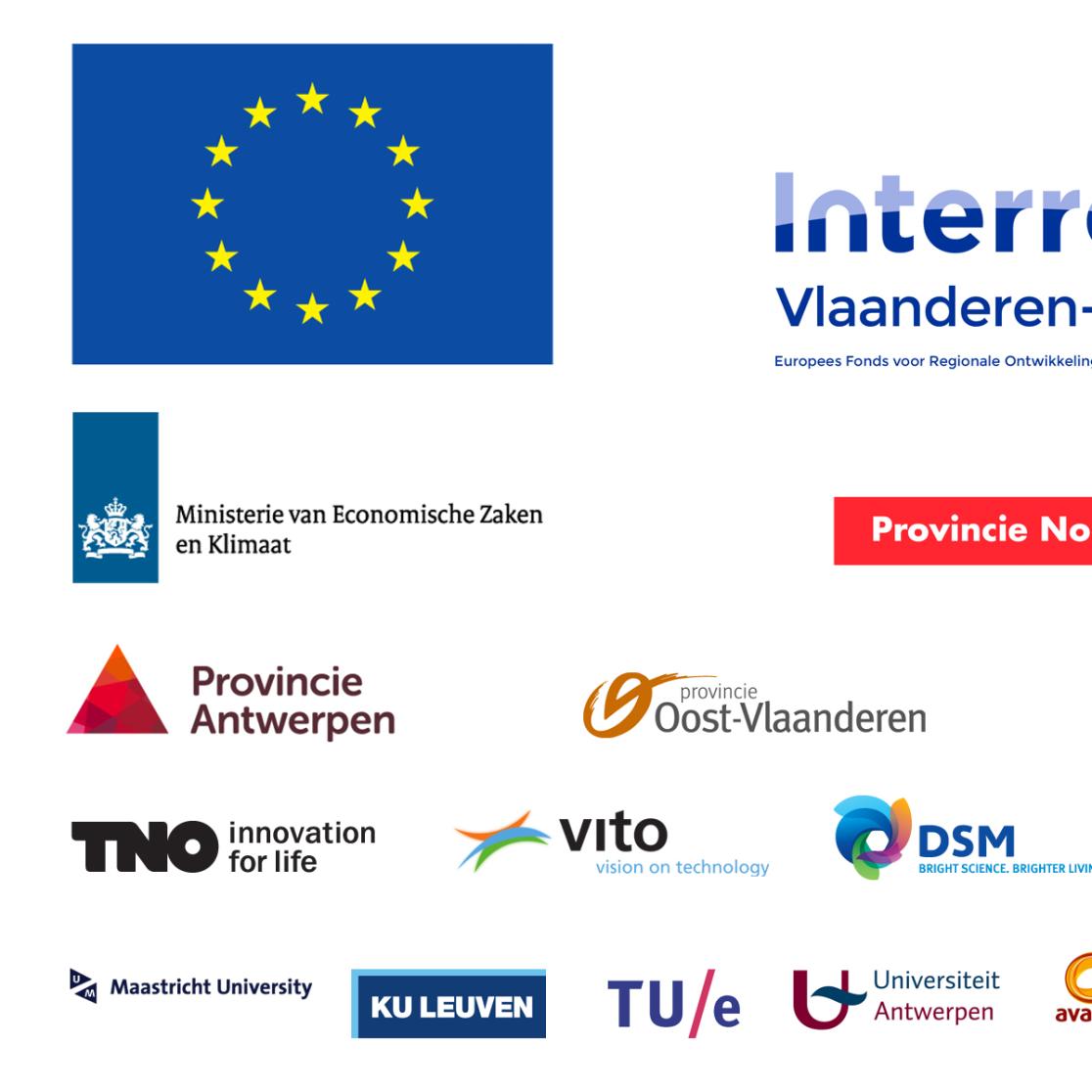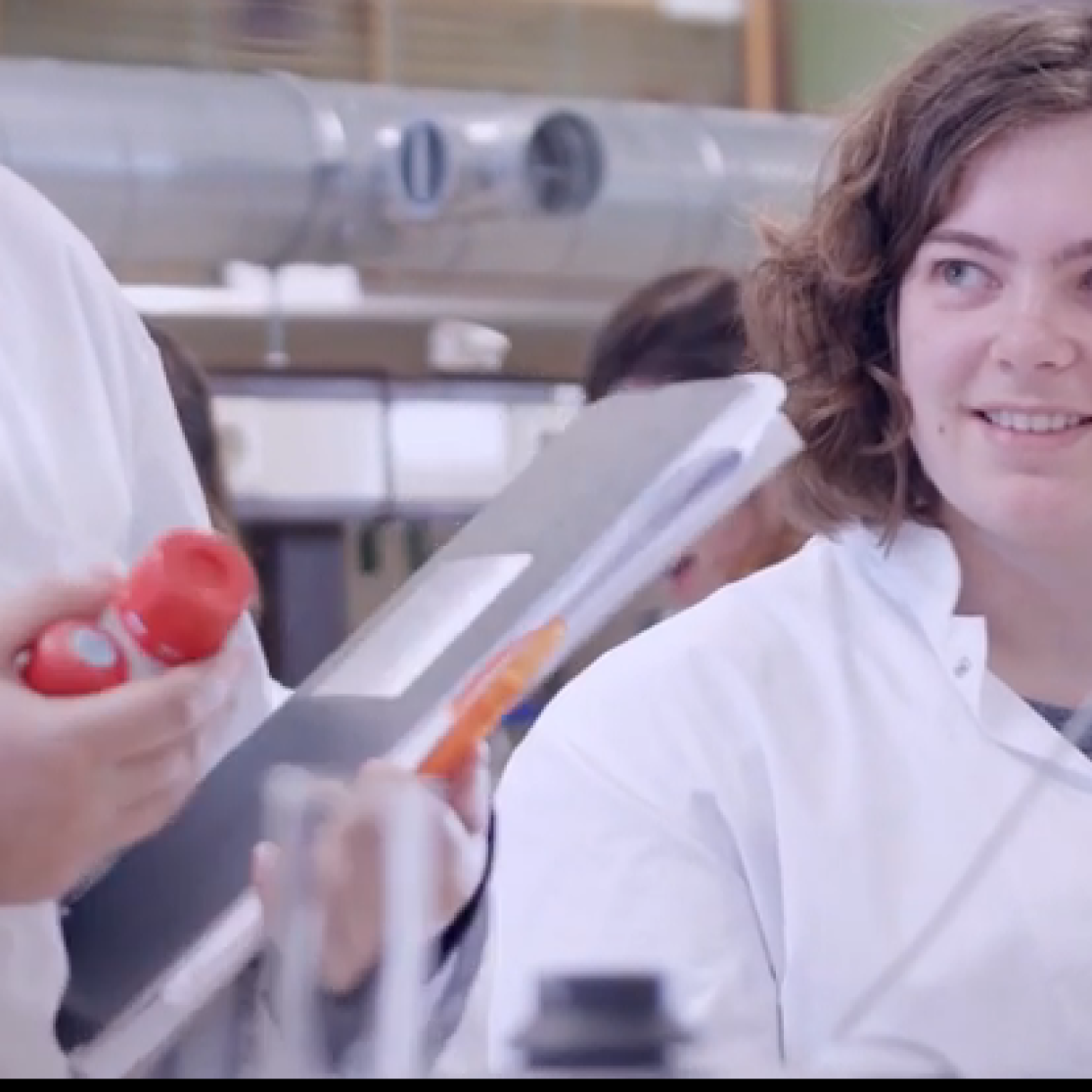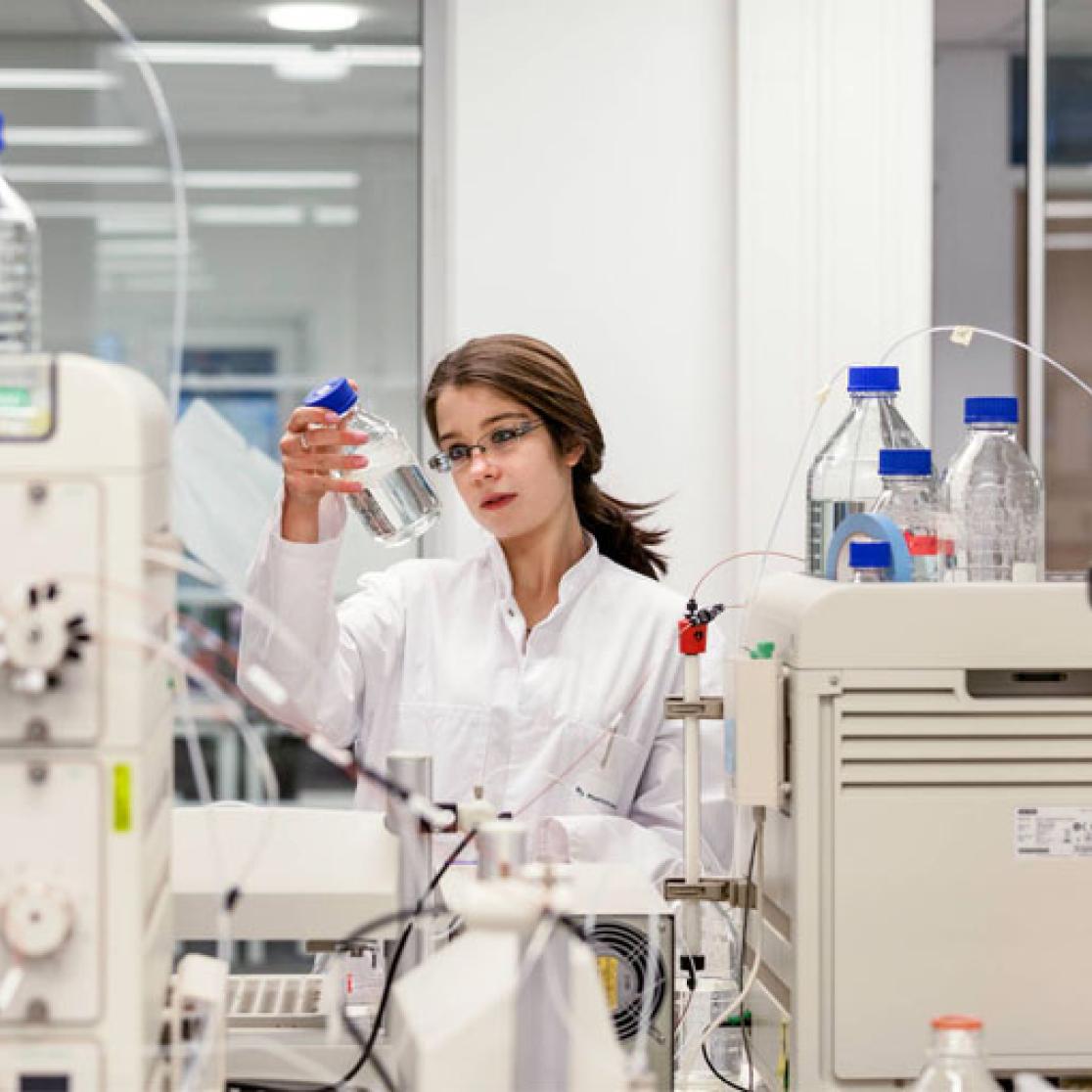Projects
The researchers within the department of Biobased Materials participate in an number of research project. They collaborate closely with other universities and research institutes as well as with the industry. The research group is involved in contract research for the industry, as well as in numerous collaborative research projects, funded by the Provincie Limburg, the national government or the European Commission.
BIO-HArT
In Dutch, the acronym BIO-HArT stands for 'Biorizon Innovation and Upscaling of Renewable Aromatics Technology'. Over the past years Biorizon has developed three commercially promising technologies for the conversion of wood, sugars and lignin into aromatics. By demonstrating the technology within this project on a larger scale, the confidence in the applicability of the technology on an industrial scale enhances and the risk to invest diminishes. Simultaneously bio-aromatics will be produced in sufficient quantities to be able to start application development routes.
"The BIO-HArT-project is of great importance to be able to accomplish our final goal: enable commercial production of bio-aromatic by 2025", says scientific manager of Biorizon Jan Harm Urbanus.
Next step in industry-driven roadmap of Biorizon
This project is the next step in the industry-driven roadmap of Shared Research Center Biorizon. The BIO-HArT-project has got 3 goals:
- Development of optimized procedures for chemistry and process.
- Realization of generic and multi-purpose bench scale demonstrators for the 3 technologies (wood, sugars and lignin to aromatics).
- Producing samples of sugars, lignin, furans, akylphenols, mono-, di- & tri-acids, functionalized phenols and other aromatic compounds. Subsequently, together with the industry applications will be developed on the basis of these samples.
Together with the industry the project results of BIO-HArT will be further developed and eventually they will be implemented in new value chains in which multiple feedstock suppliers, chemical companies and end users will be incorporated and in which existing and new production locations will be used.

Shared Research Center Biorizon scales up its bio-aromatics research considerably again. For the next 3 years Biorizon, together with 9 partners, will work on the scaling up of technology for the production of aromatics from biomass in the cross-border BIO-HArT-project. By the end of 2018 this must result in functioning bench scale demonstrators that can produce samples for the industry on a kilogram scale. Besides that, the processes for the production of bio-aromatics will be optimized further.
Beets to Polymers
Biobased materials for high-quality applications.
The challenge for this project is to apply chemicals from sugar derivatives to new materials that can be implemented in a number of different markets. The target materials derive their right to exist from a unique set of functionalities that are available at an acceptable price from the local sugar industry. At present, incumbent materials are often (solely) fossil, have a different achievement profile and being internationally procured for this application. Besides this, the appropriate materials will at first be produced in limited but sufficient quantities, in order to gain scientific insights and to connect with the buyer’s demands.
Maastricht University and Groningen University have the appropriate knowledge and equipment at their disposal to provide industrial-grade samples from within their laboratories. If these perform sufficiently they can be put through an upscaling program. The industrial partners in the consortium are Suikerunie, Philips and Astron.
ROBOX
The Robox project demonstrates the techno-economic viability of biotransformations of four types of robust oxidative enzymes:
- P450 monooxygenases (P450s),
- Baeyer-Villiger monooxygenases (BVMOs),
- Alcohol dehydrogenases (ADHs),
- Alcohol oxidases (AOXs).
The two pillars for the ROBOX project are chemistry and biocatalysis. These are used for the industrial conversion and production of alcohols that have been identified to be significant to the chemical industry. ROBOX will identify and engineer robust enzymes to lead to new green chemical processes.
ROBOX has received funding from the European Union (EU) project ROBOX (grant agreement n° 635734) under EU’s Horizon 2020 Programme Research and Innovation actions H2020-LEIT BIO-2014-1.

More information about ROBOX on the website www.h2020robox.eu .
Moleculair design of high-end materials for 3D printing
Additive manufacturing, often referred to as 3D printing, is a rapid developing technology that offers extraordinary dimensional flexibility and control in the manufacturing of complex geometries. Exquisite examples are found in metals, like patient-specific implants and even in printing of biological tissue. However, additive manufacturing with/using polymers serves often solely rapid prototyping. Failing of layered “welds” prevents a macroscopic contribution of intrinsic material properties under load. Polymers are attractive due to their ‘normally’ relatively easy processability, low density and tuneable properties, all available at a low cost. The cause is that the identity and properties of the materials are correlated to the structural organisation of the atomic building blocks, whether or not connected. In metals the atoms pool their electrons in a common sea, but upon cooling from the melt (the state of matter that allows changing macroscopic geometry), the atoms organize into a unified product relatively easy.
Also in the case of biological tissue the end product is ‘alive’ and yields macroscopically unified product performance. In polymers however, diffusion into a unified product demands significant timescales since the atomic building blocks are connected to form long molecules. To limit this time somewhat or even to ‘gain’ some extra time, it is necessary that material developers optimize polymer materials molecularly to the various 3D print processes. Just like it has been done in the past for extrusion, injection moulding, fibre spinning etc.
The development of 3D printing to a fully appreciated production technology requires hardware and material developments, which usually go hand in hand. The developments in the field of printing technology (the ‘hardware’), are ahead of schedule, whilst the necessary material development is lagging behind. For the professionalizing and promotion of 3D printing of polymer materials, this proposed research focusses on the optimization of polymer materials on a molecular level tailored to the use in existing and still to be developed hardware.
BIO4SELF
BIO4SELF aims at fully biobased self-reinforced polymer composites (SRPC). To produce the SRPCs two polylactic acid (PLA) grades are required: a low melting temperature (Tm) one to form the matrix and an ultra high stiffness and high Tm one to form the reinforcing fibres. To reach unprecedented stiffness in the reinforcing PLA fibres, we will combine PLA with bio-LCP (liquid crystalline polymer) for nanofibril formation. Further, we will increase the temperature resistance of PLA and improve its durability. This way, BIO4SELF will exploit recent progress in PLA fibre technology. We will add inherent self-functionalization via photocatalytic fibres (self-cleaning properties), tailored microcapsules (self-healing properties) and deformation detecting fibres (self-sensing).
Prototype composite parts for automotive and home appliances will be demonstrators to illustrate the much broader range of industrial applications, e.g. furniture, construction and sports goods. Our developments will enable to use biobased composites for high end applications, thus contributing to using sustainable and renewable raw materials. Being able to produce, process and sell these novel SRPCs and related composite intermediates will be a clear competitive advantage. First estimates predict a market of at least 35 kton/year, corresponding to ca. 165 M€, within 5 years.
BIO4SELF is a well balanced mix of end users (large enterprises to maximise impact), technology providers (mainly R&D driven SMEs), R&D actors (RTDs and universities) and innovation support (specialised SMEs). It covers the required expertise, infrastructure, and industrial know-how to realise the innovation potential of the novel high performance biobased SRPCs, both during and beyond the project.

This project has received funding by the European Union under grant agreement n° 685614.